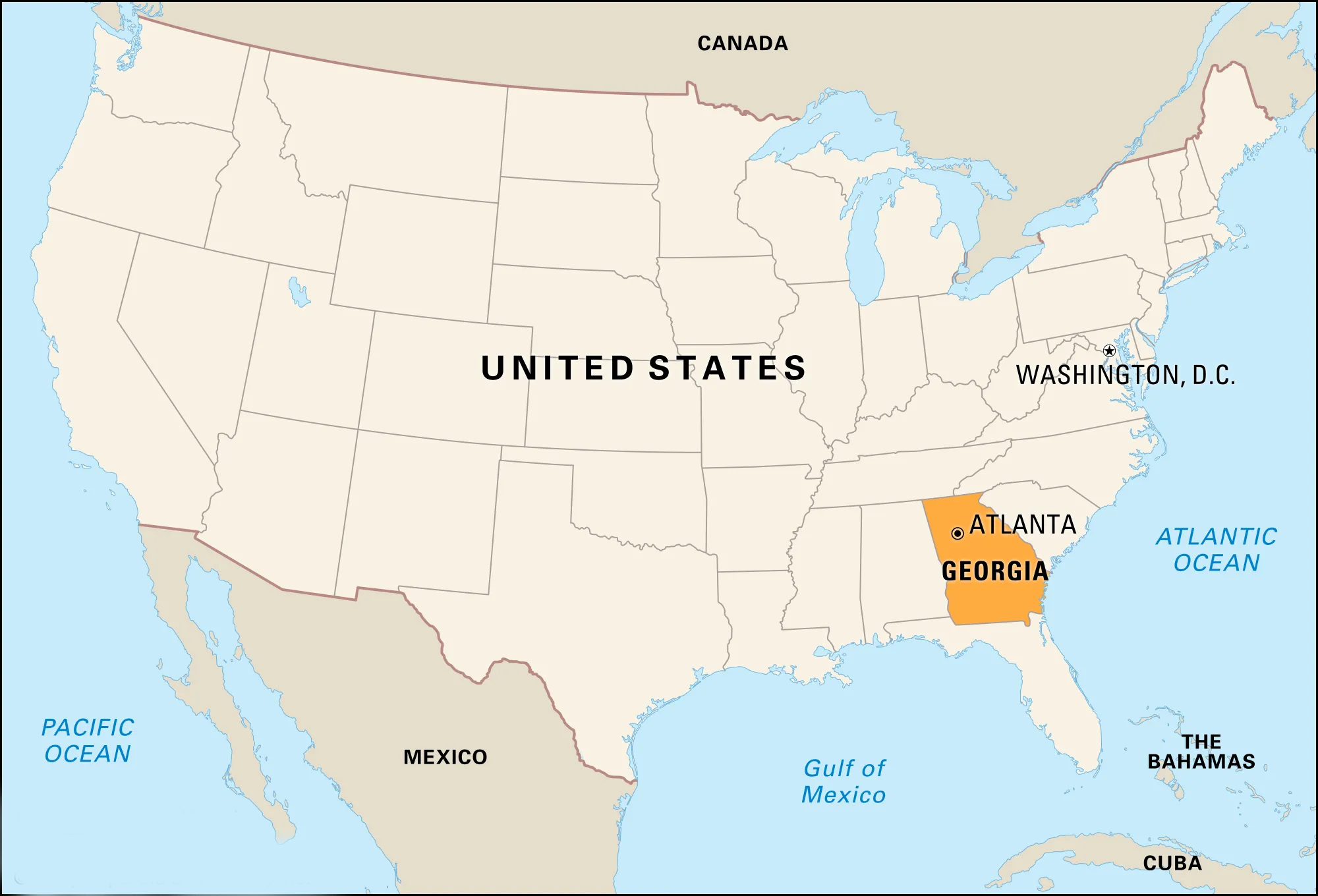Social Issues
Organized Crime and Georgia RICO Act
- 18 Aug 2023
- 6 min read
For Prelims: RICO Act, Maharashtra Control of Organised Crime Act, 1999, Organized Crime
For Mains: Challenges in combating organized crime in India.
Why in News?
Recently, former United States President Donald Trump, along with 18 of his associates, has recently been charged under the Georgia RICO (Racketeer Influenced and Corrupt Organizations) Act.
- The charges encompass a range of alleged criminal activities which mainly include forgery, making false statements, impersonating a public officer, influencing witnesses, and conspiracy.
- RICO Act has similarities with the Maharashtra Control of Organised Crime Act (MCOCA), 1999.
Note: Georgia is one of the 50 US states situated in the southeastern mainland of the United States.
What is the Georgia RICO Act?
- The RICO Act originated in the US federal law in 1970.
- Originally designed to combat organized crime, particularly mafia-related activities.
- Within a few years of the federal law taking effect, states began passing their own RICO laws.
- Georgia’s RICO Act, adopted in 1980, makes it a crime to participate in, acquire or maintain control of an “enterprise” through a “pattern of racketeering activity” or to conspire to do so.
- A conviction for racketeering under the RICO Act in Georgia can result in a prison term of up to 20 years.
- The severe penalty underscores the gravity of the Act's application.
What is the Maharashtra Control of Organised Crime Act (MCOCA), 1999?
- It was introduced to tackle organized crime activities in Maharashtra.
- The Act is not limited to the state of Maharashtra, but it is also applicable to the state of the National Capital Territory of Delhi.
- Every offence under the Act is a cognisable offence.
- Every offence punishable under this Act shall be triable only by special courts constituted under the Act.
- The Act has strict provisions to avoid misuse of power, and anyone failing to do what they are required by law to do shall be punishable by imprisonment which may extend to three years or a fine.
What is Organized Crime?
- Organized Crime activities refer to actions carried out jointly or severally by members of a gang or syndicate, with the intent of obtaining pecuniary or other advantages.
- Types of Organized Crime: Organized gang criminality, Racketeering, Syndicate Crime, Smuggling etc.
- They operate covertly, exploiting gaps in law enforcement and regulations.
What is the Legal Position In India on Organized Crime?
- Organized crime has always existed in India in some form or another. It has, however, assumed its virulent form in modern times due to several socio-economic and political factors and advances in science and technology.
- Even though rural India is not immune from it, it is essentially an urban phenomenon.
- India does not have a specific law to deal with organized crime at the national level. The existing laws, such as the National Security Act,1980, and the Narcotic Drugs and Psychotropic Substances Act, 1985 are inadequate as they target individuals and not criminal groups or enterprises.
- Some states, such as Gujarat (Gujarat Control of Organised Crime Act, 2015), Karnataka (Karnataka Control of Organised Crime Act, 2000), and Uttar Pradesh (Uttar Pradesh Control of Organised Crime Act, 2017), have enacted their own laws to combat organized crime.
- India is also a party to several international conventions and treaties that aim to prevent and suppress organized crime at the global level.
- These include:
- Conventions facilitate cooperation, mutual assistance, law enforcement, and information sharing among countries.
What are the Challenges in Combating Organized Crime?
- Inadequate Legal Structure: Lack of a dedicated law targeting organized crime groups and enterprises.
- Difficulty in Obtaining Proof: Hierarchy insulates higher leadership; witnesses fear for their lives.
- Resource and Training Shortage: Insufficient resources, training, and facilities for investigating organized crime.
- Lack of Coordination: Absence of a national agency for coordination and information exchange.
- Criminal, Political & Bureaucratic Nexus: Criminal syndicates maintain connections with politicians, bureaucrats, and media.
Way Forward
- Develop a comprehensive national law inspired by successful international models like the RICO Act.
- Establish specialized training centers for law enforcement, equipping them with advanced anti-organized crime techniques.
- Increase funding for technology and infrastructure to bolster intelligence gathering, evidence collection, and inter-agency collaboration.
- Create a central agency tasked with coordinating efforts across states and central enforcement bodies to effectively combat organized crime. Foster seamless information exchange, leveraging advanced data analytics and AI for identifying patterns and hotspots.
- Enforce stringent monitoring mechanisms to curb the criminal-political nexus. Encourage active involvement of civil society groups and human rights organizations to ensure accountability and prevent misuse of power.





